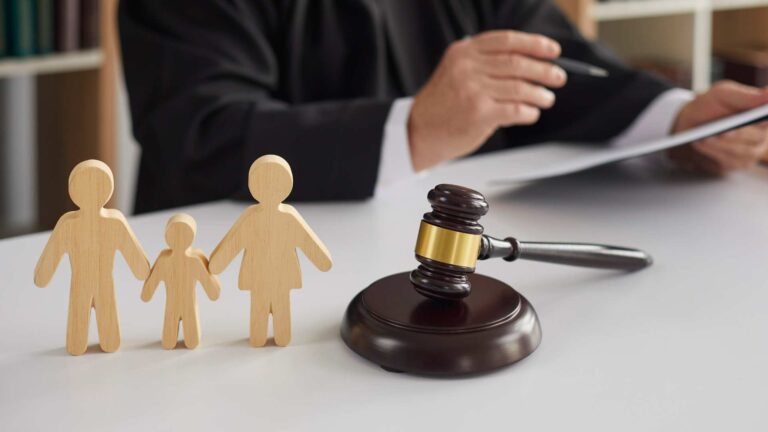Table of Contents
What does the DAAY Court mean for autism?
Youth with autism often encounter a multitude of legal challenges due to the unique characteristics of their condition. These challenges can result in complex and usually detrimental interactions with the justice system, which may not fully address their specific needs. To tackle these issues, the Detention Alternative for Autistic Youth (DAAY) Court. DAAY Court aims to create a supportive and structured environment tailored to the needs of youth with autism.
This specialized court seeks to bridge the gap between the justice system and the unique requirements of individuals with autism spectrum disorder (ASD), ensuring they receive fair and compassionate treatment.
Individuals with ASD might struggle with communication, social interactions, and behaviors that law enforcement and judicial officials misunderstand. These misunderstandings can escalate situations, leading to adverse outcomes such as unnecessary detentions or inappropriate sentencing.
This blog by ABA Centers of Florida will explore the impact of autism on the legal system, delve into the principles and benefits of ABA therapy, and examine how DAAY Court utilizes ABA to support and rehabilitate youth with autism.
Autism and the Legal System: Challenges and Misunderstandings
Autism significantly impacts how individuals interact with law enforcement and the justice system. Individuals with ASD often have difficulties with verbal communication and social cues and may exhibit behaviors that law enforcement and society can perceive as uncooperative or suspicious. These challenges can lead to misunderstandings and confrontations with police officers and other officials. For instance, an individual with autism might not respond to verbal commands or might exhibit repetitive behaviors that they could misinterpret as defiance or aggression.
The study “Young Adults with Autism Spectrum Disorder and the Criminal Justice System” examined the involvement of youth with autism in the criminal justice system using a nationally representative sample.
They evaluated whether these youth had experienced being stopped and questioned by police or arrested at ages 14-15 and 21-22. By age 21, police had stopped and questioned approximately 20% of these youth, with nearly 5% having faced arrest.
Understanding ABA Therapy
![]()
ABA therapy is a well-established approach to improving specific behaviors and skills in individuals with autism. Its principles are based on behaviorism, which emphasizes the influence of the environment on behavior. Fundamental principles of ABA include positive reinforcement, systematic desensitization, and skill-building techniques.
ABA therapy involves assessing an individual’s behaviors and developing a tailored intervention plan to address challenging behaviors and enhance adaptive skills. Therapists commonly teach techniques such as discrete trial training, natural environment teaching, and verbal behavior interventions. The benefits of ABA therapy for individuals with autism are extensive, including improved communication skills, social interactions, and reduced problematic behaviors. These improvements are valuable in helping individuals with autism navigate the complexities of the legal system.
DAAY Court and ABA: A Beacon of Support for Autistic Youth
DAAY Court and ABA? Yes! DAAY Court incorporates ABA principles to create a structured and predictable environment for justice-involved youth with autism. The court’s approach is tailored to the unique needs of these individuals, ensuring that they receive the necessary support and interventions. The court uses ABA techniques to teach coping strategies, improve communication, and manage behaviors that may have led to their legal involvement.
Detention Alternative For Autistic Youth Court treatment may include:
- Thorough developmental assessments, cognitive assessments, and neurological evaluations
- Personalized mental health counseling and potential residential treatment based on clinical needs
- Implementation of Applied Behavior Analysis (ABA) techniques
- Engagement in recreational therapy
- Provision of vocational education and guidance
- Supervision within the community, along with collaborative case management
- Periodic court status reviews to ensure progress
- Connections to relevant community resources and service providers
- Utilization of electronic monitoring when appropriate
How Was The DAAY Court Established?
The creation of the DAAY Court was in 2018 in recognition of the unique challenges faced by youth with autism in the legal system. Judge Sunny Bailey, a key figure in the establishment of the DAAY Court, was motivated by her connection to autism due to the autism diagnosis of one of her children and her desire to create a more understanding and supportive judicial environment. Since its inception, DAAY Court has evolved to become a model for how the justice system can effectively address the needs of individuals with autism.
Judge Bailey’s dedication and the collaborative efforts of legal professionals, mental health experts, and community advocates have been instrumental in shaping the DAAY Court. The court’s approach has been refined over time to serve its participants better, resulting in a program that not only addresses legal issues but also promotes long-term personal development and well-being.
DAAY Court’s Holistic Approach
DAAY Court employs a multidisciplinary approach involving lawyers, mental health professionals, and community advocates working together to support each participant. Each case is treated individually, with tailored treatment plans that address the specific needs and challenges of the youth involved. Positive reinforcement and support strategies are central to the court’s approach, helping to create an environment where participants feel understood and empowered.
Examples of the court’s positive reinforcement strategies include:
- Recognizing and rewarding progress
- Providing consistent and clear expectations
- Involving family members in the treatment process
These strategies help to build trust and encourage positive behavior changes, contributing to the overall success of the program.
Reducing Arrests and Recidivism Through ABA Integration
![]()
The integration of ABA therapy within the DAAY Court has been instrumental in preventing arrests and improving long-term outcomes for youth with autism. By addressing the root causes of challenging behaviors and providing effective interventions, ABA therapy helps to reduce the likelihood of future legal issues. The impact on recidivism rates has been significant, with many participants showing marked improvements in behavior and overall functioning.
Success stories from the DAAY Court highlight the positive outcomes achieved through the integration of ABA therapy. Youth who participate in the program experience reduced recidivism rates, improved behavior, and better overall functioning; according to a Clark County Report, of 65 individuals with autism who have been in their program, only five kids have returned. The structured environment of the DAAY Court, combined with ABA interventions, provides a supportive framework that empowers these young individuals to make positive changes and avoid future legal issues.
ABA Centers of Florida: Transforming Lives Across the Sunshine State
At ABA Centers of Florida, we provide exceptional ABA therapy to children and teens with autism. Our commitment extends beyond mere care, and we offer comprehensive autism diagnostic services to those in need.
As leaders in ABA services, we strive to support neurodivergent individuals and their families across various settings, ensuring they acquire the skills necessary for a fulfilling adulthood. Our personalized therapy helps reduce high-consequence behaviors, fostering safer and more enriched lives for individuals with ASD.
We proudly serve numerous regions across the Sunshine State, including Doral, Miramar, Jensen Beach, Davenport, Kissimmee, Tampa, Orlando, Boca Raton, Melbourne, Bradenton, and many more. Our tailored approach ensures that each child receives the individualized attention they deserve, enabling them to thrive and reach their full potential.
Discover how ABA Centers of Florida can make a difference in your child’s life. To learn more about our services and mission, contact us online or call us at (772) 773-1975. Together, we can create a more inclusive and equitable society for all.








